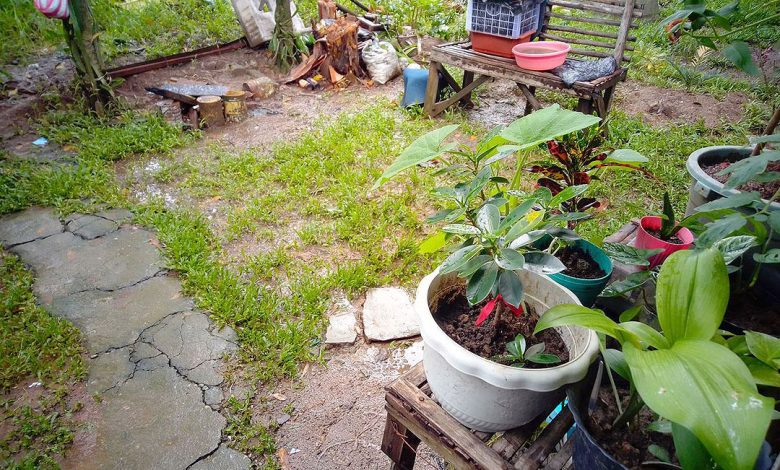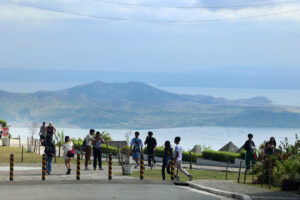Urban farming initiatives address food insecurity, loss of income

By Bronte H. Lacsamana
Sustainable farming is a fresh source of livelihood for urbanites who lost their jobs over the pandemic. In Metro Manila, both government and non-government groups are pushing farming projects in the face of already rampant food insecurity exacerbated by coronavirus disease 2019 (COVID-19).
“Communities initially took on urban gardening to support community pantries,” said Maricar “Cay” R. Piedad, a research assistant at think tank IBON Foundation, on their efforts to document urban farming initiatives. “Based on our observations, the boom of urban gardening in the cities is mainly due to loss of jobs or income in the pandemic.”
IBON is documenting eight urban communities, including informal settlers in factory zones, barangays within the vicinity of churches, and undeveloped areas in Quezon City.
Asuncion Perez Memorial Center, Inc., a partner of IBON Foundation, set up multiple urban farms in Metro Manila inspired by the rural bungkalan, which refers to collective land cultivation wherein farmers produce food for everyone.
“This started when we decided to be part of the nationwide campaign for community pantries. Of course, there was recognition that since we are a very small church-based institution, we couldn’t provide long-term,” said Liza A. Cortez, executive director of Asuncion Perez. “Community pantries aren’t sustainable to begin with. We saw it as a good response to mass hunger but we knew it wasn’t the solution.”
She shared that the communities each embarked on different efforts depending on the natural environment and character of the population — a group of housewives in Paranaque, for example, had more access to tools and planting space compared to a gathering of persons with disabilities (PWDs) in Muzon, Bulacan.
What they all had in common, however, was the motivation to not go hungry amid rising prices and limited supply.
“Even the poorest community was open to start by planting in small pots or bottles. Others already started in their own backyards, but are now appreciating the value of doing it as a collective effort,” said Ms. Perez.
TRAINING FUTURE FARMERS
Whether it’s preparing for rising food prices after a storm or making up for the lack of ayuda, a community can’t begin without proper training.
Agriculturists’ and scientists’ group Magsasaka at Siyentipiko para sa Pag-unlad ng Agrikultura (MASIPAG) is IBON Foundation’s partner in training communities in the ways of sustainable farming.
“It’s just difficult to conduct trainings because it’s not possible to do them via Zoom,” said Dishan Joy Pilar, another research assistant at IBON. “They want to be [physically] present in the community not just to train, but to survey the area.”
Aside from these NGOs, the Department of Science and Technology’s Philippine Council for Agriculture, Aquatic, and Natural Resources (DOST-PCAARRD) has also begun a similar food security project, dubbed the “Participatory Enhancement of Food Security in Laguna through S&T (science and technology)-based Home Garden Systems.”
It trains community representatives in the production of quality seeds and planting materials, crop management, and sustainability efforts. Conducted by the University of the Philippines Los Banos’ Institute of Plant Breeding, the objective is to spread knowledge of low-cost vegetable home gardening.
Ms. Pilar of IBON maintained that while the documentation of these projects may end with a report this year, urban farming itself will likely continue beyond pandemic recovery.
“It should be shared to the public so that they’re aware Filipinos can be self-sufficient,” she said. “It’s not just about the effect of urban farming on individual households or communities, but on the entire economy.”




